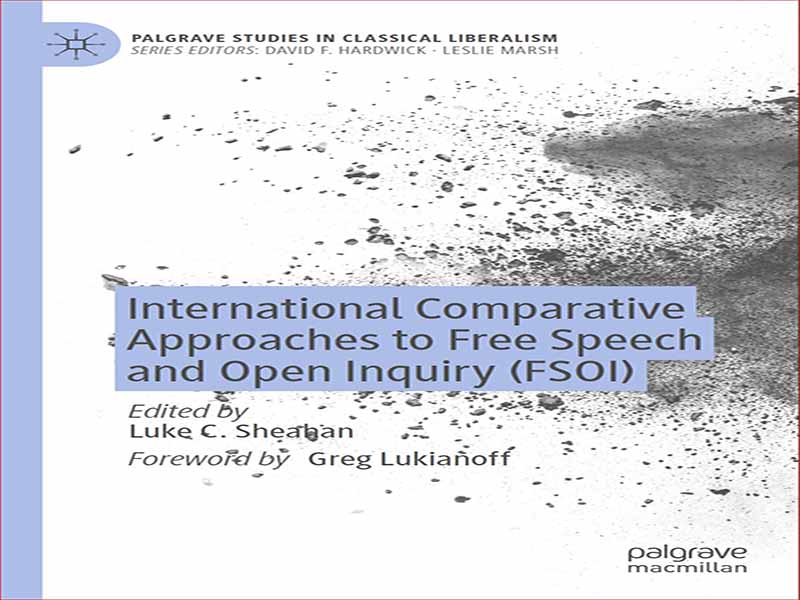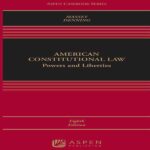- عنوان مجله: International Comparative Approaches to Free Speech and Open Inquiry (FSOI)
- نویسنده: Luke C. Sheahan
- حوزه: آزادی بیان
- سال انتشار: 2022
- تعداد صفحه: 333
- زبان اصلی: انگلیسی
- نوع فایل: pdf
- حجم فایل: 5.76 مگابایت
حتی در سال 1999، زمانی که من به عنوان دانشجوی حقوق در ACLU کالیفرنیای شمالی کارآموزی کردم، غرق قطار حرکت آهسته بیان آزاد در افق خودنمایی می کرد. آزادی بیان هم از نظر قانون و هم از نظر فرهنگ در 50 سال آخر قرن بیستم در حال بهبود بود، اما به نظر میرسید که رو به افول است و رو به سقوط است. برای کسانی از ما که به دقت توجه می کنیم واضح به نظر می رسید که ابرهای تیره ای در افق وجود دارد، اما ممکن است برای تماشاگران معمولی که وضعیت جهان را در آغاز هزاره مشاهده می کردند یک شگفتی واقعی بود. در واقع، می توان کسی را به خاطر این که فکر می کرد وارد عصر طلایی جهانی آزادی بیان می شویم، بخشید.
به هر حال، دهه 1990 با شکست به ظاهر کامل کمونیسم آغاز شد، دومین تهدید بزرگ برای لیبرالیسم («کوچک») – اولین تهدید فاشیسم. با پایان جنگ سرد و سقوط اتحاد جماهیر شوروی، انفجاری از جوامع لیبرال و دموکراسی ها در سراسر جهان به وجود آمد. حتی چین به نظر می رسید که به سمت آزادی حرکت می کند. در سیلیکون ولی، جایی که من در آن تحصیل میکردم، نوآوری علمی از طریق آنچه جاناتان راخ «علم لیبرال» نامید، در همه جا آشکار شد. ثروت با آنچه به نظر می رسید بزرگترین موتور آزادی بیانی است که تا کنون ابداع شده است، یعنی وب جهانی، ساخته می شود.
اما در ACLU، آنهایی از ما که کار آزادی بیان انجام میدادیم، از قبل حاشیهایتر به نظر میرسیدیم. شتاب در زمینههای عملی دیگر، مانند حقوق همجنسگرایان یا عدالت نژادی بود. وکلایی که با آنها کار می کردم سعی می کردند راه هایی را برای “تعادل” آزادی بیان در برابر سایر ارزش های مهم بیابند، به گونه ای که من را شگفت زده کرد. و در پردیسهای کالجهای نخبه مانند استنفورد (جایی که در دانشکده حقوق تحصیل میکردم)، آزادی بیان – ارزشی که زمانی هیجانانگیز، متعالی و حتی عاشقانه بهشمار میرفت – از قبل در فهرست اولویتها پایینتر آمده بود.
علیرغم نزدیکی ما به دانشگاه کالیفرنیا برکلی، “زمین صفر” افسانه ای برای جنبش آزادی بیان تنها سه دهه قبل، این واقعیت که آزادی بیان در محوطه دانشگاه جلای خود را از دست داده بود قابل پیش بینی بود. به هر حال، آزادی بیان استدلال ترجیحی افراد ضعیف یا حداقل، نظراتی است که نمی توانند به جمع آوری اکثریت آرا امیدوار باشند. از نظر تاریخی، صاحبان قدرت، آزادی بیان را به عنوان یک ناراحتی یا تهدید در نظر می گیرند. در دموکراسیها، اکثریت قدرت را دارند، و بیشتر دانشگاهها قبلاً به طور قطعی چپگرا بودند و برای دههها چنین بودند. در اواخر دهه 1990، اکثریت ردههای چپگرای مدیران و اساتید در حال تبدیل شدن به اکثریت فوقالعاده بودند، زیرا تنوع دیدگاهها و استخدامها به طور چشمگیری کاهش یافت. فقدان تنوع سیاسی در میان اساتید و مدیران بسیار نگران کننده است، زیرا با همگن شدن نهادهای معرفتی ما، قبیله گرایی و تفکر گروهی تقریباً اجتناب ناپذیر می شود.
گروهاندیشی اغلب قبل از حوادثی مانند تصادف قطار پیش میرود. نقل قولی که مارک کلی، فضانورد، پس از فاجعه ناسا در کلمبیا در سال 2003 روی دیوار اتاق کنفرانس دید، این خطر را به اختصار خلاصه می کند: “هیچ یک از ما به اندازه همه ما گنگ نیستیم.” تنوع دیدگاه ها بالشی در برابر خطای انسانی است، و در محوطه دانشگاه، دفاتر بی شماری که به حفاظت از تنوع اختصاص داده شده اند، هنوز علاقه ای به آن تنوع حیاتی پیدا نکرده اند.
همچنین کاملاً درست است که هم آزادی بیان و هم اصلاحیه اول، به همان اندازه که از حقوق بیان حقوق همجنسگرایان، حقوق زنان و جنبشهای حقوق مدنی حمایت میکنند، از بیان تعصبآمیز و جنسیتی حمایت میکنند. و با این حال، در دهه 1980، افرادی که می خواستند آزادی بیان را در محوطه دانشگاه محدود کنند، کدهای گفتاری را با این استدلال که برای حمایت از حقوق زنان و اقلیت ها ضروری است، توجیه می کردند، به گونه ای که گویی هیچ یک از این جنبش های حقوق مدنی دقیقاً به دلیل محیط سخنرانی شکوفا نشده است. این کدها به دنبال ممنوعیت بودند. در حالی که در اوایل دهه 1990 کدهای گفتار دانشگاه هم در دادگاه حقوقی و هم در دادگاه افکار عمومی گم شد، آنها زمینه را برای شک و تردید بیشتر نسبت به آزادی بیان در همان جایی که بیشترین تکیه بر بازار آزاد ایده ها دارد، ایجاد کردند: آموزش عالی.
Even in 1999, when I interned at the ACLU of Northern California as a law student, the free speech slow motion train wreck was looming on the horizon. Freedom of speech had been improving both in terms of law and culture through the last 50 years of the twentieth century but seemed to be cresting and heading for a fall. It seemed clear to those of us paying close attention that there were dark clouds on the horizon, but it may have been a real surprise to casual onlookers observing the state of the world at the turn of the millennium; indeed, one could be forgiven for thinking we were entering a global golden age for freedom of speech.
After all, the 1990s began with the seemingly complete defeat of communism, the second of the great threats to (“small-L”) liberalism— the first being fascism. With the end of the Cold War and the fall of the USSR, there was an explosion of liberal societies and democracies arising all across the globe. Even China seemed to be inching toward freedom. In Silicon Valley where I was studying, the scientific innovation unleashed through what Jonathan Rauch dubbed “liberal science” was manifest everywhere. Fortunes were being made with what seemed to be the greatest free speech engine ever devised, the World Wide Web.
But within the ACLU, those of us who did free speech work already seemed more marginal. The momentum was with other practice areas, like gay rights or racial justice. Attorneys I worked with were trying to figure out ways to “balance” freedom of speech against other important values in a way that surprised me. And on the campuses of elite colleges like Stanford (where I was attending law school), freedom of speech— a value once held as exciting, transcendent, even romantic—had already been pushed even further down the list of priorities.
Despite our proximity to UC Berkeley, the fabled “ground zero” for the free speech movement just three decades prior, the fact that freedom of speech had lost its sheen on campus was predictable. After all, freedom of speech is the preferred argument of the underdog, or at least, of opin-ions that couldn’t hope to muster a majority of votes. Historically, those in power regard free speech as an inconvenience or a threat. In democra-cies, the majority has the power, and most college campuses were already decidedly left-leaning and had been for decades. By the late 1990s, the majority left-leaning ranks of administrators and faculty were becoming super majorities as viewpoint diversity and hiring began to plummet dramatically. A lack of political diversity among faculty and administra-tors is of great concern because as our epistemic institutions become too homogenous, tribalism and groupthink become almost inevitable.
Groupthink often precedes disasters like train crashes. A quote astro-naut Mark Kelly saw on a conference room wall in the wake of NASA’s 2003 Columbia disaster sums up the risk succinctly: “None of us is as dumb as all of us.” A diversity of viewpoints is a cushion against human error, and on campus, the myriad offices devoted to protecting diversity have not yet developed an interest in that critical variety.
It is also absolutely true that both freedom of speech and the First Amendment protect bigoted and sexist speech just as much as they protected (and continue to protect) the speech rights of the gay rights, women’s rights, and civil rights movements. And yet, in the 1980s, people who wanted to restrain free expression on campus justified speech codes by arguing they were necessary to protect the rights of women and minorities as if none of these civil rights movements had flour-ished precisely because of the speech environment these codes sought to prohibit. While campus speech codes lost in both the court of law and the court of public opinion by the early 1990s, they set the groundwork for greater skepticism of free speech in the very place that is most reliant on an open marketplace of ideas: higher education.
این کتاب را میتوانید از لینک زیر بصورت رایگان دانلود کنید:
Download: International Comparative Approaches to Free Speech and Open Inquiry (FSOI)




































نظرات کاربران